Tag: Gunter Schlierkamp
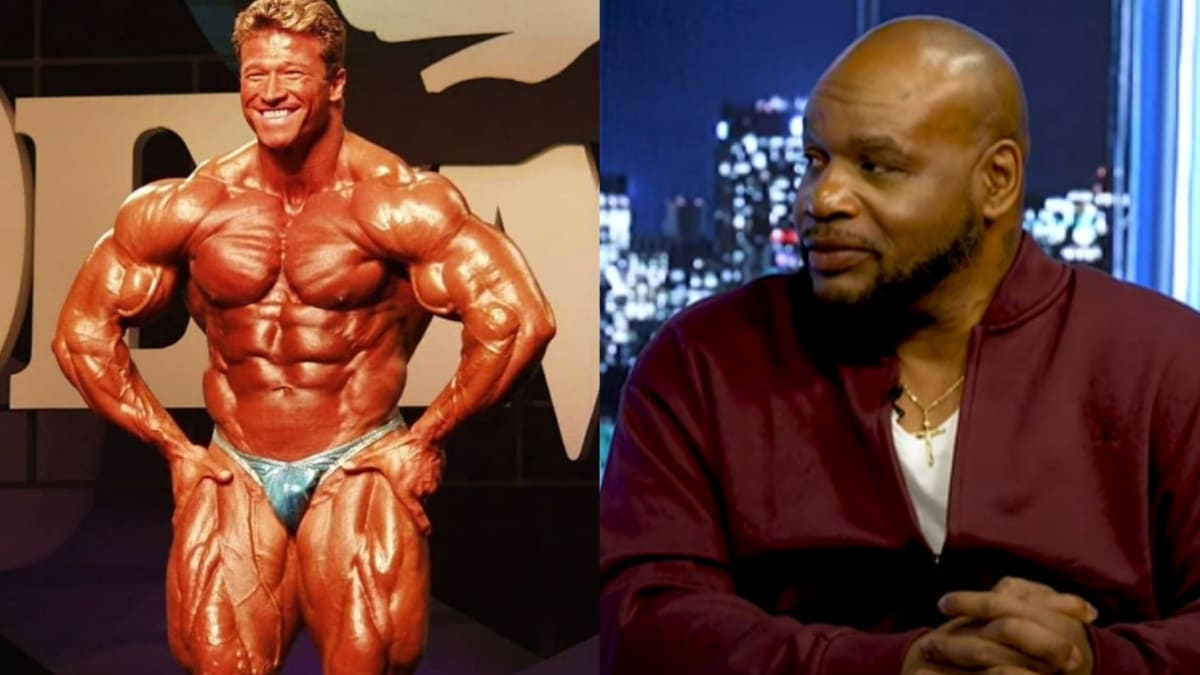
Chris Cormier Reflects on Gunter Schlierkamp Almost Defeating Ronnie Coleman at 2002 Mr. Olympia
Bodybuilding veteran Chris Cormier was a mainstay in the IFBB Pro League during the 1990s and 2000s. In a recent Prime Time Muscle podcast, Cormier looked back on 2002 Mr. Olympia where Gunter Schlierkamp pushed Ronnie Coleman with one of his career’s best packages.
German pro Gunter Schlierkamp led a successful tenure lasting over 15 years. He was well respected in the industry for his size and muscularity as many predicted he would be a future Mr. Olympia winner assuming his conditioning was on par with his contemporaries. He shared the stage with several big names in the sport like Flex Wheeler, Cormier, Coleman, and Jay Cutler.
Having reflected on past Mr. Olympia competitions, Schlierkamp believes he could have placed higher at a few contests but said winners weren’t hand-picked. His remarks came after Kevin Levrone took part in The Menace Podcast with Dennis James. Levrone suspected that outside factors and politics played a role in which bodybuilders ultimately won gold and represented the brand.
In a trip down memory lane, Cormier relived his 2002 Mr. Olympia experience when Gunter Schlierkamp was leading the show ahead of Coleman during prejudging. While Schlierkamp finished fifth, Cormier said it was one of his best looks of all time.
Chris Cormier on Gunter Schlierkamp at 2002 Mr. Olympia: ‘Joe Weider Told Us He Was Giving Ronnie Trouble’
According to Chris Cormier, Joe Weider warned him that Gunter Schlierkamp was on track to challenge for gold in 2002. It should be noted that Gunter Schlierkamp defeated Coleman at the 2002 GNC Show of Strength
“We were in Amsterdam, competed in Europe, myself, Ronnie, all the crew, Dexter, we’re all there and we were a little tired we were coming from a little tour in Europe. Then, we were in Amsterdam, so we were eating the cookies, and I was eating the cookies. Yup. I was in good shape. I wasn’t worried about it. We went there to New Orleans, on our way there, Joe Weider was talking to someone at the time on the tour and expressed to us how good Gunter was looking and that he’s possibly going to be giving Ronnie some trouble – that he was in that good of shape.
Getting over to the show, you know, we were like, ‘Okay, so,’ but it’s still Gunter, it’s not like a killer. But we were still banking on beating him. And it was a lot of money at stake. We were going in there guns a-blazing also, King Kamali was also there. But he [Gunter Schlierkamp] was in great shape. They did the first call out, they called out Ronnie, they called out Gunter, and they called myself out. It was us three in that call out there.”
Looking back on the contest, Cormier said he, Coleman, and Gunter all won some shots. He highlighted that shape and aesthetics were highly favored by judges at the time.
“I think they had Gunter in first place after the symmetry round, so I’m pissed, I kind of go off on him about it after the prejudging, ‘How the hell you get first place in the symmetry round?’ I’m just kind of like, ‘What the hell is going on here?’ He and his wife at the time was going back and forth with me in the lobby, I was pissed, don’t be telling me you’re winning the symmetry round, come on man, you know you don’t deserve that shit.”
“I would win some shots, Gunter would win some shots, Ronnie would win, but at that time, it was a lot of shape and a lot of aesthetics going on in the judging and the flavor of that type of year. It just kind of hit everyone by surprise. Kevin Levrone jumped on the stage and congratulated him and was so happy for Hunter, because he thought in his mind, now the blood is in the water, now I can get Ronnie too. If Gunter can beat him, I could beat him. I was pissed till I got my check that day.”
Given Schlierkamp’s combination of size, fullness, and conditioning, Cormier and Olympia judge Terrick El Guindy agree it was one of his most complete packages to date.
“It was a good place from him but it was the time, coming from Europe and all that stuff, but I’m not going to take anything away from him because he did look good that day,” added Cormier.
“Joe Weider approached Chris Cormier and he said, ‘Gunter is looking incredible, Ronnie might be in trouble.’ What he was referring to is, I took a gander at this guy and his conditioning has never been this good and credit to Joe and Gunter, this is his best conditioning. So, I still think he needed to be more large on top. But, if you look at the hamstrings and the glutes, we had never seen that before from Gunter, and here he shows something different to the judges, to the audience, at this event in 2002,” El Guindy said.
“I think he changed dieticians and something, he did something a lot different. I know he was training with Charles Glass back in the day. He came in a lot different in that show. That was probably the peak show of his career,” Cormier shared.
The last time fans heard from Schlierkamp, he joined Dennis Wolf for a workout at 52. Fans were taken aback by his jacked biceps in retirement. Despite his ability to push the pace with some of the biggest mass monsters the sport has seen, Gunter appears happy with his downsized physique since stepping away from bodybuilding.
RELATED: History of Mr. Olympia
After reminiscing about 2002 Mr. Olympia, Cormier who placed third ahead of Gunter Schlierkamp, still believes the German native brought one his best physiques of all time.
You can watch the video below from the Olympia TV YouTube channel:
Published: 6 May, 2023 | 11:06 AM EDT

Gunter Schlierkamp Full Interview | Beating Ronnie Coleman, Bodybuilding’s Future & More
[embedded content]
Watch the full uncut GI Exclusive interview with Gunter Schlierkamp
Gunter Schlierkamp is a former pro bodybuilder who was known for his mass monster size. In fact, his size was so enormous it challenged Ronnie Coleman… and even beat him in one rare occasion after Ronnie was already Olympia champ. Now retired and dropped down in size – we reconnected with Schlierkamp to get his thoughts on modern bodybuilding and dive into his career.
Gunter Schlierkamp has been rather quiet and less engaged with the bodybuilding world. That’s why we were excited to land a video interview to get his opinion on how things have changed over the years and an first person account of his greatest accomplishments.
Over the past few months we’ve released multiple GI Exclusive segments from our interview with Gunter Schlierkamp. Now we’re releasing the full length interview including topics such as how he beat Ronnie Coleman, his critique on modern bodybuilding physiques, and his thoughts on Phil Heath’s Olympia reign – among other topics.
Listen To Our Gunter Schlierkamp Interview On The Generation Iron Podcast
Our full length interviews are now also in podcast form! Subscribe to the Generation Iron Podcast for candid, full length interviews with the biggest names in bodybuilding, fitness, combat, and strength sports.
Listen to the full Gunter Schlierkamp interview here:
Gunter Schlierkamp Answers: How He Beat Ronnie Coleman In His Mr. Olympia Prime
Gunter Schlierkamp is a bodybuilder who is beloved by many fans in the history of the sport. He may not have earned an Olympia win – but his mass monster physique was impressive and earned him a spot as an icon in bodybuilding. But there is one fact that might be shocking to fans who don’t know Schlierkamp’s career in detail. In 2002, just three weeks after Ronnie Coleman won his fifth Mr. Olympia title, Schlierkamp defeated Ronnie Coleman.
Of course, Ronnie Coleman had been defeated before. It’s well known that Coleman struggled to place high initially before dominating the field. That being said, after he started winning the Mr. Olympia year after year – Gunter Schlierkamp is the only bodybuilder to have defeated him during his reign. How did he do it?
We asked this very question to Gunter Schlierkamp during our latest video interview. His answer has little to do with some sort of mysterious trick – and more to do with continued hard work mixed with a boost of extreme confidence.
Gunter Schlierkamp faced off against Ronnie Coleman at a pro show in New Orleans three weeks after the Mr. Olympia. During the Olympia show – Schlierkamp placed fifth. This his first time making it into the top five at Mr. Olympia. Afterwards, famous bodybuilding journalist Peter McGough came up to him backstage. With extreme excitement, McGough stated that Schlierkamp should have placed in the top five the previous year. His placing in 2002 was vindication of the mistake that the judges made sleeping on him last year.
This news from such a trusted voice in bodybuilding made Gunter Schlierkamp ecstatic. So when he went into the New Orleans show just three weeks later – he had extreme confidence in his own ability going into the show. Not only that but he felt the energy of the fans. Any self doubt was thrown out the window. Mix that with continued hard work – and Schlierkamp found himself with the best conditioned physique he ever had.
Contest timing is always important as well. We asked Schlierkamp if he felt that Ronnie might have peaked at the Olympia only to be off three weeks later. Gunter Schlierkamp dismissed this idea. In his opinion, Ronnie Coleman looked better at the New Orleans show compared to the Mr. Olympia. By that notion, Schlierkamp believes to not have won by luck – but by pure hard work and will power. He didn’t defeat Ronnie on an off day. He defeated Ronnie at the top of his game.
Gunter Schlierkamp: It’s Dangerous For Young Bodybuilders To Get Too Big, Too Fast
We asked Gunter Schlierkamp about his thoughts on Big Ramy’s win and if it will push forward the trend of increasing the average size of pro bodybuilders. Gunter is unsure at the moment whether or not Big Ramy will reign as Mr. Olympia long-term. But he is a bit worried about the growing trend he’s seeing in modern bodybuilding. Less so about mass monster physiques in general and more about how its influencing younger athletes.
Gunter Schlierkamp understands that pushing the limits of size is part of bodybuilding – but he thinks that younger athletes are now rushing too fast to get there. Reaching a weight of near 300 pounds should be a slow process over many years. It shouldn’t be achieved short term. It seems, at least to Schlierkamp, that in today’s society of instant gratification – some young athletes want to reach the pinnacle faster than ever before.
Schlierkamp fears that this will lead to serious health issues. Again, he understands that mass monster physiques are a part of bodybuilding in the big picture. He knows all athletes take some risk to achieve it. But he’s convinced that rushing too fast at too young of an age almost guarantees serious health issues that could be avoided.
Gunter Schlierkamp reflects on Dallas McCarver, who passed away too soon at the age of 26. While it’s impossible to directly connect his cause of death to his mass monster size – Schlierkamp worries that this was the underlying cause.
He recounts a moment just before McCarver died – where he was asked on his opinion of the athlete. He admitted that his physique and size was astounding and impressive. But he also worried that he achieved it at such a young age that something bad would happen. Shortly afterwards, he heard the news of Dallas McCarver’s death. He was deeply saddened by not only the untimely death but the timing of his statement. Was he right? He worries so – and hopes that incoming bodybuilders take their time to build mass monster muscle rather than rush it.
Wrap Up
Gunter Schleirkamp discusses many more topics than what we can cover in this single article. He shares his thoughts on Women’s Bodybuilding and it’s return, Arnold Schwarzenegger, and Sylvester Stallon – among many other topics. That’s why you should check out the full GI Exclusive interview above! He shares his personal experience and tips for training, nutrition, and more.
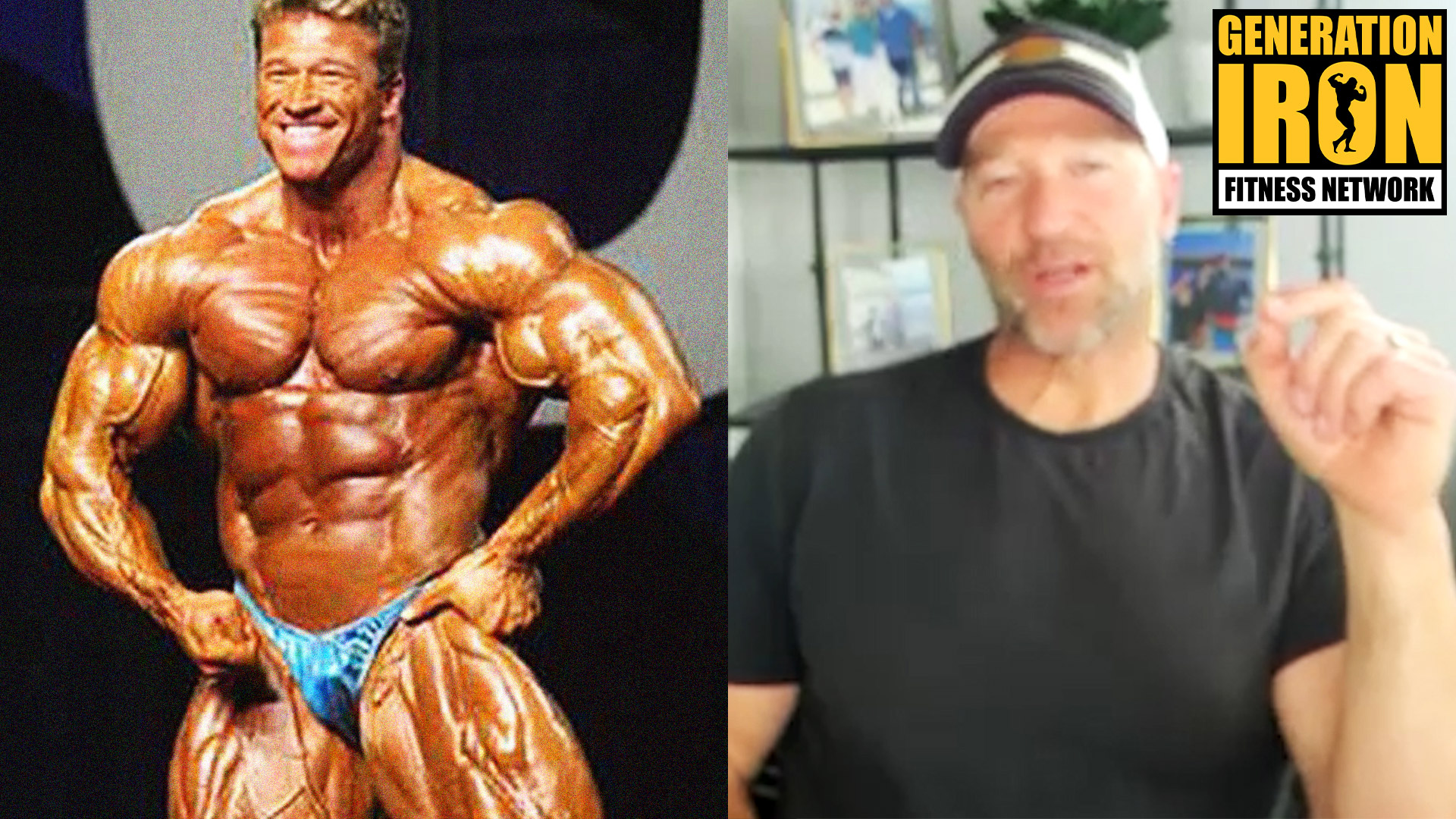
Gunter Schlierkamp Answers: Did He Retire Too Soon?
[embedded content]
Gunter Schlierkamp discusses his lower placing in 2006, struggling with his physique, and the decision to retire.
In 2005, Gunter Schlierkamp placed fourth at the Mr. Olympia. This seemed part of a steady rise over the years and an indicator that he could continue to be a threat for the Sandow trophy. Unfortunately, a year later Schlierkamp placed 10th at the Mr. Olympia 2006. Shortly after he retired from competitive bodybuilding. What happened? In our latest GI Exclusive, Gunter Schlierkamp details his final year of bodybuilding and whether or not he retired too soon.
Gunter Schlierkamp is a bodybuilder with an iconic physique despite never being a Mr. Olympia champion. And to many fans who followed his career – he seemed destined to one day earn that champion status. Then suddenly in 2006, his physique took a hit. He looked less on point than the previous year. He ultimately placed 10th at the Olympia and retired.
For fans of the bodybuilder, this seemed like a sudden and screeching halt. Gunter Schlierkamp had a steady rise to a high point of fourth place – only to suddenly slam down to 10th and stop competing all together. What would have happened if he gave it another year? Did he retire too early?
We asked Gunter Schlierkamp these questions directly. Reflecting back – does Schlierkamp regret retiring after his slump year in 2006? Or does he think it was all for the best? Schlierkamp speaks bluntly about the whole situation. For some unexplainable reason, his body was not reacting to his training methods the same way it had been in years prior. He tried changing up his methods but nothing worked. It’s as if his body suddenly started rejecting his training all together.
Gunter Schlierkamp was 36 years old at this time. There have been bodybuilders that compete well into their 40s and even 50s. But perhaps for Schlierkamp, his body was starting to change as he aged. With his body reacting differently to his training, he got off rhythm and lost confidence. Suddenly he was in a spiral that led to a physique he was less proud of than in previous years.
After placing 10th at the Mr. Olympia 2006, Gunter Schlierkamp thought long and hard about what his next move should be. He understood that bodybuilding couldn’t be a lifetime career. He also had other passions in his life that he wanted to pursue such as being a husband and father. Ultimately, Schlierkamp saw this as an early warning sign. A warning that the decades of bodybuilding were starting to take a toll on his body. So he hung up the towel and started focusing on his family.
Of course, Gunter Schlierkamp had plenty of other opportunities due to bodybuilding. He maintained a sponsorship for income and eventually started his own business. This was all thanks to the reputation he gained as a bodybuilder. So does he feel that he retired too early? No, Schlierkamp thinks he made the right choice. Perhaps he could have bounced back after 2006 – but he would have also missed out on other opportunities that he is proud of in his life.
You can watch Gunter Schlierkamp’s full response about his retirement in our latest GI Exclusive interview segment above!

Gunter Schlierkamp: Why Does The Olympia Champion Only Compete At Mr. Olympia?
[embedded content]
Gunter Schlierkamp answers: Should the Mr. Olympia champion compete more than once per year?
It’s almost completely commonplace for the Mr. Olympia champion to not compete again until the next Mr. Olympia competition. But this was not always the case, in past eras, the dubbed European Tour after Mr. Olympia would often showcase a series of events where the top five Olympia contenders, including the new champion, continued to compete. Gunter Schlierkamp, for example, even beat Ronnie Coleman in a competition shortly after Coleman had just won the Olympia title. Why did things change? In our latest GI Exclusive, Gunter Schlierkamp shares his thoughts as to why the Olympia champion only competes once per year.
For the past few decades, the winner of the Mr. Olympia would typically only compete once per year. For example, Phil Heath would win the big show and then not compete again until the following Olympia competition. We asked Gunter Schlierkamp why this is the case and his answer shows both sides of the argument.
At first, Gunter Schlierkamp’s reaction was that of not understanding why the Mr. Olympia champion only competes once per year. He explains how, typically, a bodybuilder’s conditioning remains strong for three weeks after a show. If they land on the Mr. Olympia on point – why would they not compete in a few more shows afterwards? Even if it’s just for some additional prize money?
Gunter Schlierkamp reflects on previous eras, where the traditional European Tour would occur right after the Mr. Olympia. These would typically be back to back shows for multiple weekends in a row. The biggest names from Olympia would compete and often the Mr. Olympia champion would be among them.
To some degree, the European Tour has changed. There are less big pro shows that occur immediately after the Mr. Olympia – either due to the pro shows getting more spread out or disappearing completely. If the pro shows are not in the immediate weeks after the Olympia, it would make sense for the champion to avoid it.
That being said, Gunter Schlierkamp also presents another side to the topic. He understands that the Mr. Olympia prize money is very high – more than enough for a year’s worth of salary. On top of that, training and succeeding at being the best in the world takes its tole. He likens it to a gold medal Olympic athlete. After a runner wins the gold at the Olympics, that athlete will likely not try to reach that champion-level time again for quite some time.
Perhaps it is smart for the Mr. Olympia champion to only compete once per year. This allows the champion to only focus on one thing – winning the Mr. Olympia again. They can’t use depletion from another pro show event earlier in the year as an excuse for a lackluster presentation at Olympia. Why even take the risk? Especially if the prize money (and sponsorships) allows for the athlete to not need to compete again.
You can watch Gunter Schlierkamp’s full thoughts on how often the Mr. Olympia champion competes in our latest GI Exclusive interview segment above!
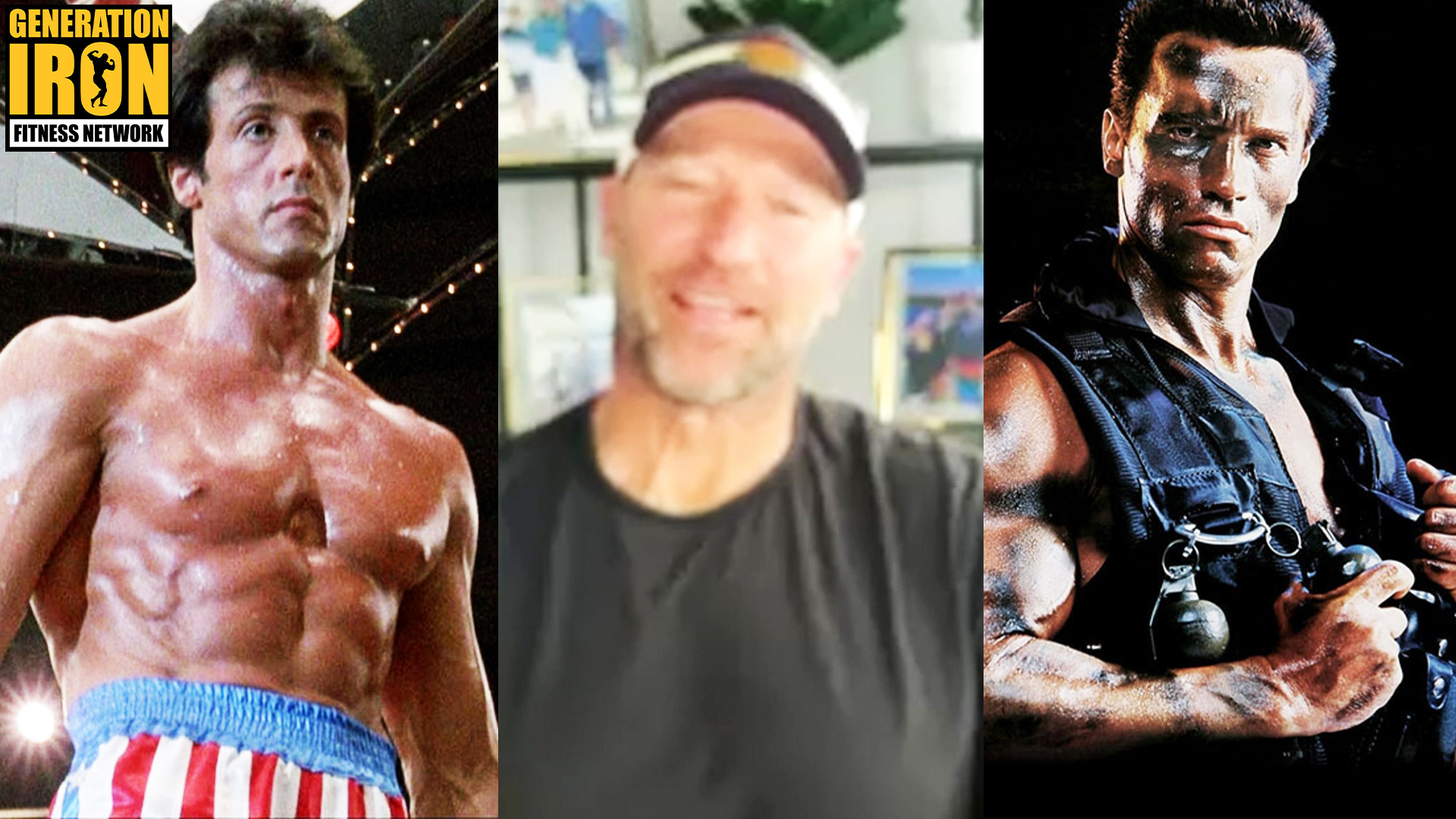
Gunter Schlierkamp Debates: Sylvester Stallone Movies Vs Arnold Schwarzenegger Movies
[embedded content]
Which muscle action star has better movies: Sylvester Stallone or Arnold Schwarzenegger? Gunter Schlierkamp answers.
There was a golden era of muscle-bound action movies in the 80s. Two of the biggest stars from that era were Arnold Schwarzenegger and Sylvester Stallone. Both brought powerful physiques to the mainstream via blockbuster films. But of these two shredded actors – who had the best movies? We asked that very question to Gunter Schlierkamp. In our latest GI Exclusive, Gunter Schlierkamp makes his pick between Sylvester Stallone and Arnold Schwarzenegger movies.
While majority of our interview segments deal directly with bodybuilding and strength sprots trends – we sometimes like to throw a few curveball fun questions into the mix. That’s why during our conversation with Gunter Schlierkamp we asked him to pick his favorite action star – Sylvester Stallone or Arnold Schwarzenegger.
Both of these actors were significant in bringing chiseled muscle onto the mainstream blockbuster circuit. Schwarzenegger was, of course, a pro bodybuilder himself. While Stallone didn’t match his size – he brought an unprecedented amount of muscle to the screen compared to majority of Hollywood actors. It was a golden era of sorts for muscle in Hollywood.
So who does Gunter Schlierkamp prefer more? He was torn – he didn’t want to directly choose one over the other. Instead, he focused on the things that made each actor different and why he liked those qualities.
For Sylvester Stallone, Schlierkamp felt that his films brought more of a message behind the stories. Films like Rocky and First Blood had something to say beyond being fun action films. On the other hand, Arnold Schwarzenegger’s films focused more on flash and bang. The cartoonish nature of his action films are entertaining in their own right.
Gunter Schlierkamp also makes mention of Schwarzenegger’s comedic side. With films like True Lies, Jingle All The Way, and Kindergarten Cop – Schwarzenegger showcased that he had comedic chops to match his action muscle. It’s a big part of what allowed him to stay relevant in Hollywood. While he was not a Shakespearean level actor – he had true versatility in his roles.
Ultimately, Gunter Schlierkamp enjoys the work of both actors equally. He finds a different thing to enjoy about each muscle-bound actor’s films. Which films do you prefer? You can watch Schlierkamp go into full detail by watching our latest GI Exclusive interview segment above.
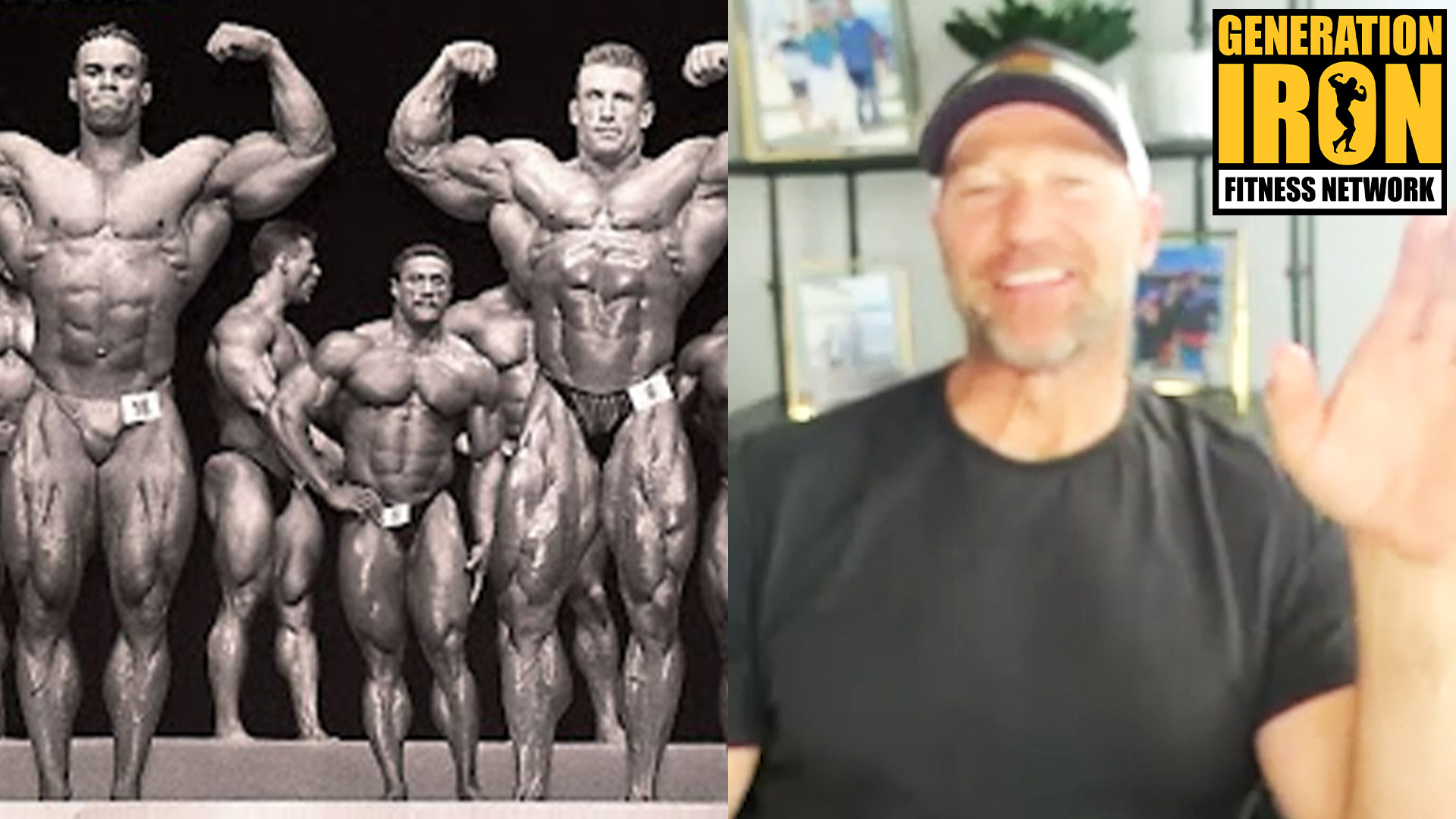
Gunter Schlierkamp: I Competed In Bodybuilding When It Was At Its Best
[embedded content]
Gunter Schlierkamp details the excitement he had moving to America and training at Gold’s Gym in the 90s.
It’s often said that the 90s into the early 2000s is the new Golden Era of bodybuilding. Or perhaps the second coming of the Golden Era. With athletes like Flex Wheeler, Ronnie Coleman, Kevin Levrone, and Shawn Ray among others – it’s hard to disagree. It also seems that Gunter Schlierkamp shares this sentiment as well. Schlierkamp was an outsider who entered into American pro bodybuilding during this time. In our latest GI Exclusive interview, Gunter Schlierkamp reflects on his journey to becoming pro and why he’s glad he was lucky enough to compete in what he calls the best era of bodybuilding.
No one is born a bodybuilder. If you were to look back at childhood photos of any famous bodybuilder – you would likely not expect how physically massive they would eventually become. That’s what makes origin stories so fascinating in this sport. There are millions of avenues and walks of life that eventually point towards pro bodybuilding. For Gunter Schlierkamp – his journal also involved leaving his home country to find his footing in the United States.
During our conversation with Gunter Schlierkamp, we asked him to reflect on how he discovered bodybuilding and what brought him to America. He details how quickly he saw growth once he fell in love with weightlifting. Eventually, his physique was so impressive – someone took him under his wing. That person insisted that he needs to go to America. He wanted him to compete with the greats at events like Night of Champions and, of course, the Mr. Olympia.
Gunter Schlierkamp’s journey to the United States was not an easy one. He describes first arriving and having to basically find places to sleep like a nomad. He would sleep in abandoned factories and in cars. He went head first into traveling to America and it took him some time to get his financial footing. Since he couldn’t get a bank account – he trusted someone to take his money and keep it in a bank for him. That ended poorly as he was taken advantage of.
Ultimately he made his way to California, got some financial footing, and started training at Gold’s Gym. He gushes at how lucky he was to be born at a time when he would compete and train in the 90s. Suddenly he went from idolizing athletes like Flex Wheeler to being in the same room and training alongside him. It was a dream come true.
He also believes that he competed at the best time in bodybuilding history because of the famous Joe Weider contracts. At a time before social media and over-saturation of supplement companies – Schlierkamp was able to land a Weider contract. It was like becoming a salary employee in bodybuilding. Suddenly his passion for bodybuilding was his full time career.
Today, those kind of contracts don’t happen. While there is more opportunity for profit – it’s more entrepreneurial. It relies on social media excellence (which also requires a little bit of luck) to obtain followers and generate revenue. There’s more control – but also more risk. Internet relevancy can turn on a dime.
You can watch Gunter Schlierkamp go into more detail about his bodybuilding origins and why he believes the 90s is the best era for competitive bodybuilding. Watch it all in our latest GI Exclusive interview segment above!
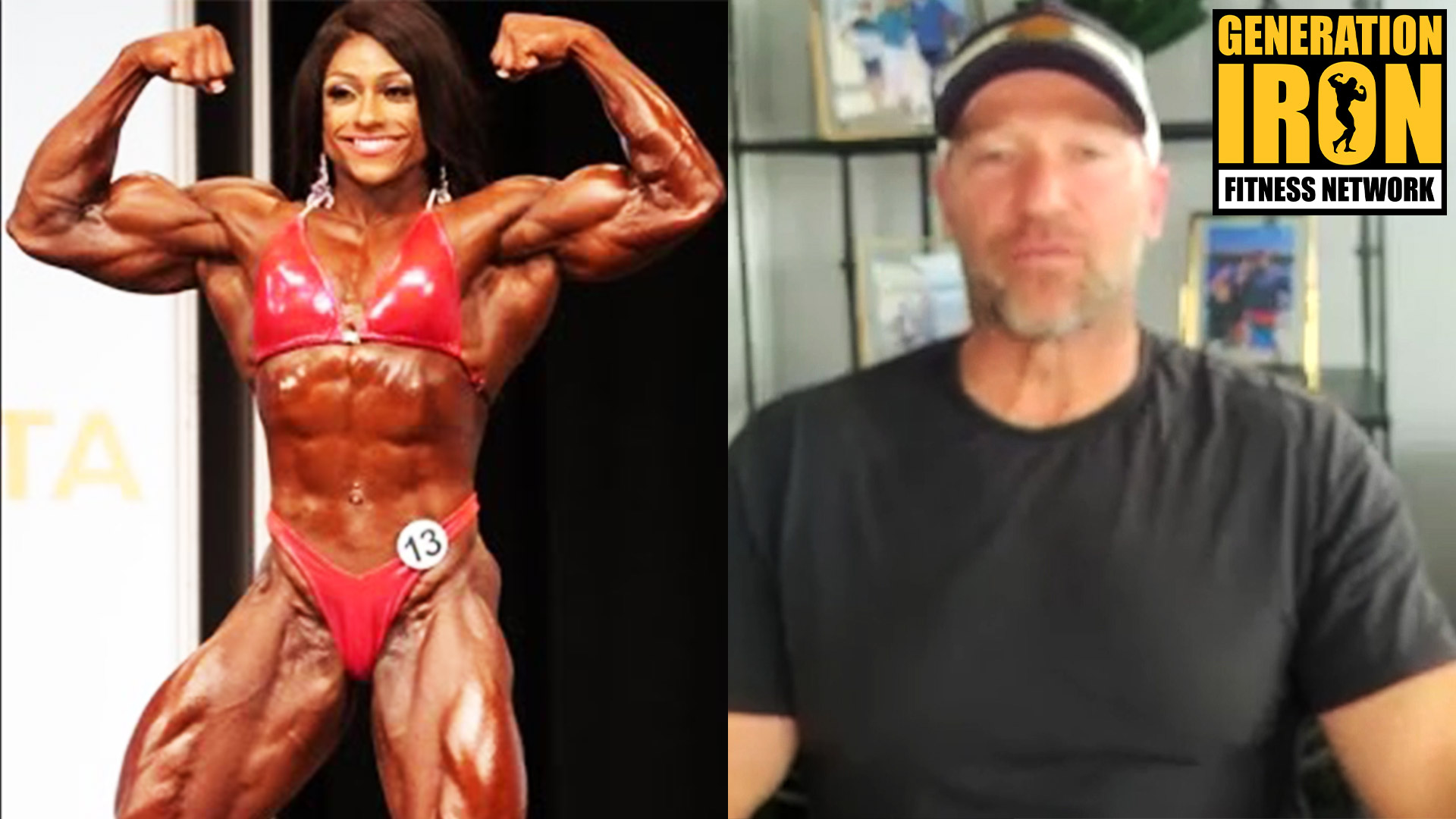
Gunter Schlierkamp: Women’s Bodybuilding Is Impressive But Not Enjoyable To Look At
[embedded content]
Gunter Schlierkamp shares his personal feelings on Women’s Bodybuilding.
For a short while, Women’s Bodybuilding looked to be dead. It was no longer included in the Olympia weekend and only appeared in a very small handful of shows. All of that changed in 2020, with the Ms. Olympia returning and seemingly on track to stay in the future. Compared to other female divisions, Women’s Bodybuilding has often been controversial due to the massive size of the competitors. The battle for “femininity” in the sport has plagued the division since its inception. In our latest GI Exclusive interview, Gunter Schlierkamp tries to find balance between the impressive accomplishments of Women’s Bodybuilding vs his personal taste in women physiques.
Gunter Schlierkamp has made his opinions on Women’s Bodybuilding clear in the past. He’s admitted that he doesn’t find the mass monster physiques on Women’s Bodybuilders attractive. That’s why during our recent interview, we wanted to follow up with Schlierkamp about those comments. Does he still feel that way since the division’s comeback? And could he go into more detail about what exactly he meant?
Gunter Schlierkamp doubles down on his original statement. For him, the Women’s Bodybuilding division is just too big and doesn’t have enough femininity. In fact, he believes the division has the same problem that Men’s Open currently has. Namely, that the athletes are putting on too much size and muscle for their frame.
For Women’s Bodybuilding, this increase in mass monster culture combines with Gunter Schlierkamp’s personal taste on women’s physiques. He simply believes they should not be as muscular as men. It’s not something he’s attracted to.
It’s at this point that Vlad Yudin chimes in to point out that an athletic sport is about achievement and not personal taste. A women’s division in a sport should aim to accomplish the same athletic feats as the men’s division counterpart. Gunter Schlierkamp agrees and reframes his initial comments.
Shclierkamp admits that he finds Women’s Bodybuilding extremely impressive. He believes that what the female athletes accomplish in terms of muscle and conditioning is awe-inspiring as the male athletes. He doesn’t want to take away from what they accomplish. That being said, as a fan of the sport and from the perspective of a spectator – he simply doesn’t find Women’s Bodybuilding enjoyable to watch. He doesn’t find it appealing to his personal taste.
“If a woman does it for competing and just placing and winning shows. Is that impressive the work she puts in there? Hell yeah,” Gunter Schlierkamp states in our interview. He continues:
“I mean, it’s ridiculous, it’s insane, it’s dedication, it’s awesome for that. But do I like it for me personally to loo at? I have to say no. That’s not what I like. So how about I say it like that.”
Do you agree or disagree with Gunter Schlierkamp’s separation of personal taste vs achievement in athletic sport? Check out his full comments in our GI Exclusive interview segment above and decide for yourself!
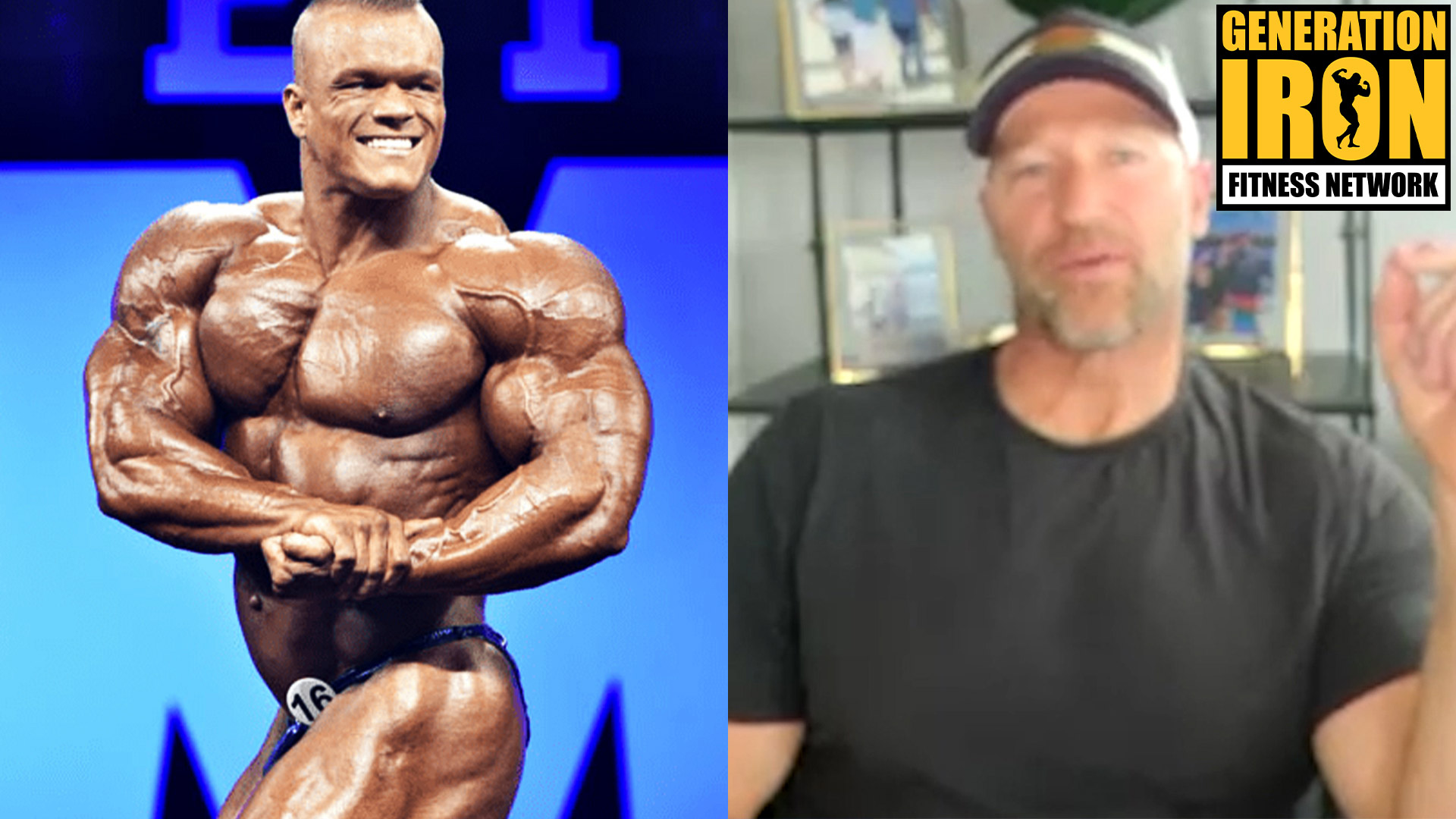
Gunter Schlierkamp: It’s Dangerous For Young Bodybuilders To Get Too Big, Too Fast
[embedded content]
Gunter Schlierkamp reflects on the passing of Dallas McCarver and the growing trend of bigger size in bodybuilding.
Last week, Gunter Schlierkamp discussed how bodybuilders need to match their muscle size to their genetic frame. Now in our latest segment, Schlierkamp continues sharing his thoughts on the growing trend of pushing the limits of mass monster size in bodybuilding. Is it getting too dangerous? For Schlierkamp, it depend son how you do it. His biggest concern is how fast bodybuilders, especially young athletes, are putting on size. In our latest GI Exclusive interview, Gunter Schlierkamp explains how some young bodybuilders are putting on too much size at too fast a rate.
When Shawn Rhoden won the Mr. Olympia in 2018, it seemed as if there might be a shift in physique aesthetic moving forward. Would a more classic look start to be preferable instead of mass monster size? Ultimately, this was a passing thought – as two years later Big Ramy won the Mr. Olympia and brought back mammoth size to the title. It seems with a few exceptions, hulking mass monster physiques are here to stay.
We asked Gunter Schlierkamp about his thoughts on Big Ramy’s win and if it will push forward the trend of increasing the average size of pro bodybuilders. Gunter is unsure at the moment whether or not Big Ramy will reign as Mr. Olympia long-term. But he is a bit worried about the growing trend he’s seeing in modern bodybuilding. Less so about mass monster physiques in general and more about how it’s influencing younger athletes.
Gunter Schlierkamp understands that pushing the limits of size is part of bodybuilding – but he thinks that younger athletes are now rushing too fast to get there. Reaching a weight of near 300 pounds should be a slow process over many years. It shouldn’t be achieved short term. It seems, at least to Schlierkamp, that in today’s society of instant gratification – some young athletes want to reach the pinnacle faster than ever before.
Schlierkamp fears that this will lead to serious health issues. Again, he understands that mass monster physiques are a part of bodybuilding in the big picture. He knows all athletes take some risk to achieve it. But he’s convinced that rushing too fast at too young of an age almost guarantees serious health issues that could be avoided.
Gunter Schlierkamp reflects on Dallas McCarver, who passed away too soon at the age of 26. While it’s impossible to directly connect his cause of death to his mass monster size – Schlierkamp worries that this was the underlying cause.
He recounts a moment just before McCarver died – where he was asked on his opinion of the athlete. He admitted that his physique and size was astounding and impressive. But he also worried that he achieved it at such a young age that something bad would happen. Shortly afterwards, he heard the news of Dallas McCarver’s death. He was deeply saddened by not only the untimely death but the timing of his statement. Was he right? He worries so – and hopes that incoming bodybuilders take their time to build mass monster muscle rather than rush it.
You can watch Gunter Schlierkamp’s full comments on Big Ramy and young mass monsters in our latest GI Exclusive interview segment above!
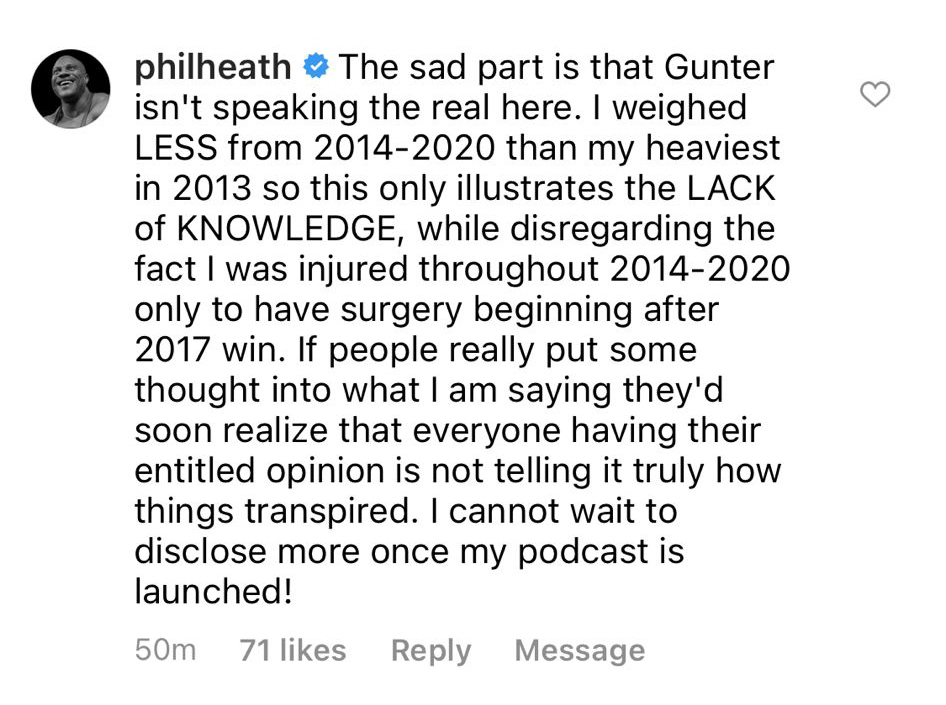
Phil Heath Fact Checks Gunter Schlierkamp’s Comments In Generation Iron Interview
Phil Heath responds in reaction to Gunter Schlierkamp’s recent statements in Generation Iron interview.
Over the past few weeks, we’ve been releasing GI Exclusive interview segments from our conversation with Gunter Schlierkamp. Known for his mass monster size in his heyday, Schlierkamp is an iconic veteran bodybuilder who competed primarily in the 90s and early 2000s. In our latest released segment, Schlierkamp shares his thoughts on Phil Heath’s physique and reign as Mr. Olympia. The comments caught Heath’s attention – and Phil Heath promptly responded by fact checking Schlierkamp’s comments via Instagram.
Phil Heath is one of the most successful pro bodybuilders in the history of the sport. He’s earned seven Mr. Olympia championship titles – matching Arnold Schwarzenegger and only one behind the world record holders Ronnie Coleman and Lee Haney. Despite this, he received criticism in his later years, namely 2017-2020 due to his relaxed stomach. By 2018, he fell to second at the Mr. Olympia. Upon returning in 2020, he placed 3rd.
In our GI Exclusive interview segment, Gunter Schlierkamp praised Phil Heath’s physique but felt that he ultimately tried to put on too much mass in his later career. Schlierkamp commented that, in general, bodybuilders need to not build mass beyond their frame. He believes that Heath made this very mistake – which led to his lower placings in 2018 and beyond. He also stated that he thought Kai Greene’s presence may have forced Heath’s hand to put on more muscle.
Phil Heath seems to have watched the interview himself and noticed some inconsistencies with Gunter Schlierkamp’s opinion. He decided to set the record straight by commenting on Instagram:
“The sad part is that Gunter isn’t speaking real here. I weighted LESS from 2014-2020 than my heaviest in 2013 so this only illustrates the LACK of KNOWLEDGE, while disregarding the fact I was injured throughout 2014-2020 only to have surgery beginning after 2017 win. If people really put some thought into what I am saying they’d soon realize that everyone having their entitled opinion is not telling it truly how things transpired. I cannot wait to disclose ore once my podcast is launched!”
Phil Heath makes a great point here. According to his comment, he weight his most during his prime years. He also points out that he had been suffering injury as early as 2014. This injury, which seems to be referencing his hernia issues and eventual surgery, has been the main element in his struggles 2017 to the present.
Gunter Schlierkamp, of course, was responding to our question on the fly. He likely didn’t have all the facts other than the general sense of what he witnessed as a fan of the sport. Schlierkamp earlier in our interview admitted to not being deeply connected to bodybuilding via social media. Schlierkamp’s response is most likely what he honestly believed in regards to Phil Heath. This seems to be the reason why Heath wanted to set the record straight.
Phil Heath also makes quick mention to his own personal podcast. While it is not launched yet, it seems that the seven time Mr. Olympia champion is in the process of hosting and distributing his own podcast talk show. From his comments here, it seems that Heath will be sharing detailed and honest info about his career and some behind-the-scenes insights into bodybuilding.
You can watch our GI Exclusive interview segment with Gunter Schlierkamp and his thoughts on Phil Heath below. But certainly make sure to read and keep in mind Phil Heath’s side of the story as well.
[embedded content]
Generation Iron will continue to update this report as more information becomes available. For more bodybuilding news and strength sports updates – make sure to stay tuned to the Generation Iron Fitness Network!
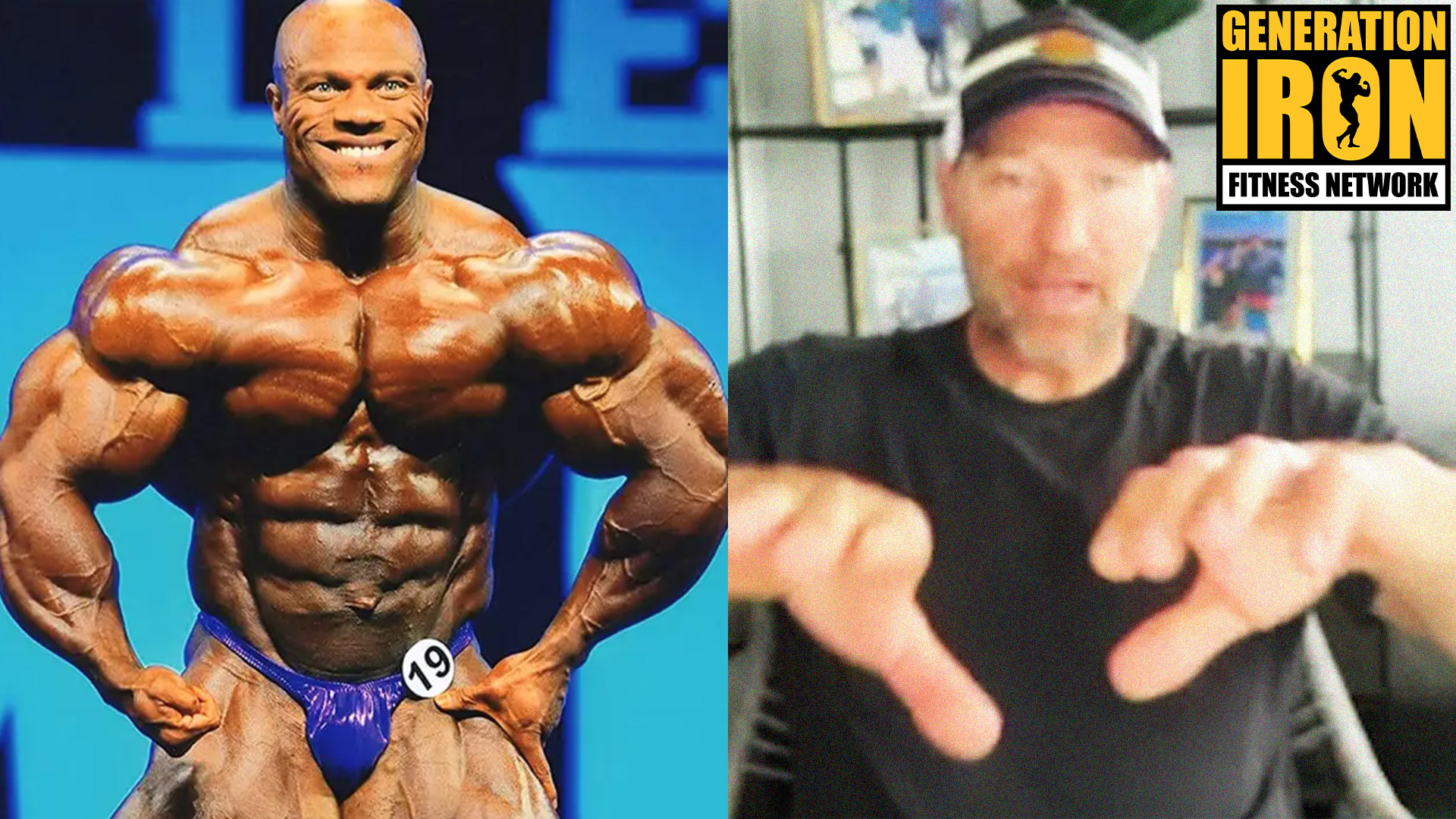
Gunter Schlierkamp: Phil Heath’s Biggest Mistake That Ended His Olympia Reign
[embedded content]
Gunter Schlierkamp recounts the key advice he gave a young Phil Heath and how not following it led to his late stage downfall.
Genetically, some bodybuilders have bigger frames and some have smaller frames. Gunter Schlierkamp was a tall and wide-framed bodybuilder. It’s what allowed him to successfully carry such intense mass monster size. Phil Heath, on the other hand, is a small-framed bodybuilder. He’s shorter and simply doesn’t have the build to put on Ronnie Coleman kind of weight. In our latest GI Exclusive interview, Gunter Schlierkamp reflects on advice he once gave Phil Heath about building muscle to fit your frame.
While discussing his picks for the best bodybuilders of all time, Gunter Schlierkamp mentions Phil Heath. He put’s him firmly at number six on his list behind the likes of Ronnie Coleman, Lee Haney, and Jay Cutler. But as Schlierkamp reflects on Phil Heath, he becomes excited and frustrated at the same time.
Gunter Schlierkamp recounts the very first time he ever saw Phil Heath. It was before he went pro and was training to compete and earn his pro card. Schlierkamp saw Heath from afar and was astounded. His jaw dropped. He was looking at a bodybuilder with one of the most impressive physiques he had ever seen. Schlierkamp made a point to meet Phil Heath and see him up close.
Gunter Schlierkamp urged Phil Heath to compete right away. He could win instantly and become a pro bodybuilder. Heath was playing the long game. He wanted to wait another year to really perfect his physique. Ultimately, Phil Heath did earn his pro card and the rest his history.
But Gunter Schlierkamp also remembers a piece of advice he gave Phil Heath during those early years. He told him to always remember to not “overload his frame.” By that, Schlierkamp was talking about how much muscle mass to put on to fit your genetic size. Schlierkamp believes it is all too common in the modern era of bodybuilding for athletes to chase size beyond their frame. At the end of the day, your genetic frame cannot change. It’s no use fighting against it. If you “overload” the frame, you’ll look blocky and less pleasing.
This is the exact mistake that Gunter Schlierkamp saw Phil Heath make later in his career. There’s no denying that Heath had a fantastic run and deserved all seven of his Mr. Olympia titles. That’s no easy feat. He’ll go down in history for that. But Schlierkamp believes there could have been more victories in his future.
Unfortunately, Phil Heath started adding on more size and “overloaded” his frame. He believes that is in part what caused the distended stomach issues in his later career. Schlierkamp can’t help but understand why Phil Heath eventually fell into this trap. Kai Greene rose up in the ranks with a bigger frame and much more muscle mass. He was the direct threat and rival to Heath. This kind of pressure most likely caused Heath to try and up his game and increase size.
Phil Heath is a bodybuilder who had a fantastic run and will certainly be considered a legend etched forever in bodybuilding history. But other bodybuilders who overload their frame might not have that kind of success. That’s why Gunter Schlierkamp wants to share his advice with everyone watching – consider your frame when building muscle mass. Don’t fall into the trap of mass monster obsession.
You can watch Gunter Schlierkamp’s full comments in our latest GI Exclusive interview segment above!
- 1
- 2
